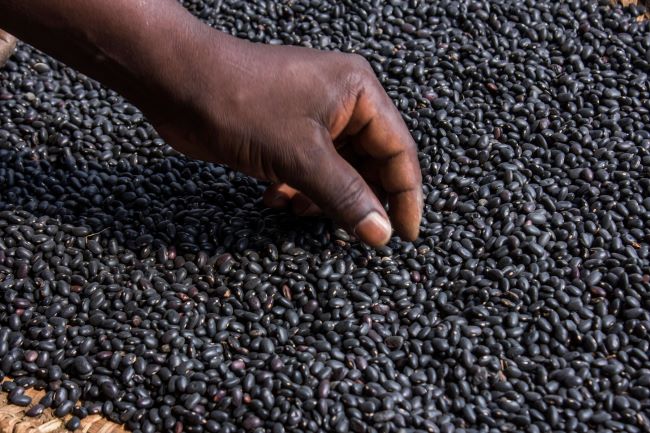KAMPALA, October 9, 2024 – The National Agricultural Research Organisation [NARO] has concluded a six-year research project focused on fortified beans, aiming to improve the nutritional value of one of the country’s most consumed legumes.
Conducted by NARO’s National Cereals Resources Research Institute [NaCCRI] in the districts of Arua, Hoima, Kamwenge, Oyam, and Sironko, the project aimed to enhance the nutrition and health of smallholder farmers through bio-fortified beans. It also looked at post-harvest handling techniques as well as handling nutrition challenges among children and mothers in peasant households.
Key findings revealed that only 2.6 percent of Ugandan farmers engage in the production of bio-fortified beans, a stark contrast to the average of 58.5 percent in other Eastern African countries.
It established that Ugandan farmers also face low on-farm yields, with Hoima district recording the lowest at 497 kilogrammes per hectare, while Oyam shows slightly better yields at 804 kg per hectare. Factors contributing to low yields include prolonged droughts, pests and diseases, limited access to agricultural inputs, and declining soil fertility.
Scientists noted that only 15 percent of smallholder farmers use fertilisers, while most rely on traditional practices such as crop rotation, early planting, timely weeding, and removal of diseased plants.
Dr. Pamela Paparu, the Lead Investigator of the project, stated that the study aimed to identify areas for improvement in bean production, productivity, post-harvest handling, and bean quality. The initiative successfully established 30 farmer groups and identified 42 field school facilitators to enhance production, while also involving 12 government agricultural extension officers.
Practical manuals detailing proper agronomic practices were developed, covering topics such as pest and disease control and soil management.
Dr. Yona Baguma, NARO’s Director General, emphasiSed the importance of continuity and sustainability in such projects, which help farmers develop their capacities, increase production, and maintain their farms. “These projects provide farmers the opportunity to maximize their potential, but we must also focus on helping them sustain their achievements for the long term to improve their household incomes sustainably,” he said during the project’s closing meeting in Namulonge, Wakiso district.
Data indicates that many farmers lose up to 14 percent of their produce due to post-harvest challenges, including insect infestations, excessive rainfall, poor storage facilities, and financial constraints.
Beans are a staple food in nearly all communities across Uganda and are also exported, with production mainly led by women.
Data shows that beans occupy approximately 12 percent of the total cultivated area and are grown by over 85 percent of households in Uganda, making the country the second-largest producer of beans in East Africa, after Tanzania. In 2022, Uganda earned about US$ 111.4 million from bean exports, ranking behind coffee, gold, and fish.
https://thecooperator.news/lango-teso-farmers-embrace-growing-iron-rich-beans/
Buy your copy of thecooperator magazine from one of our country-wide vending points or an e-copy on emag.thecooperator.news
